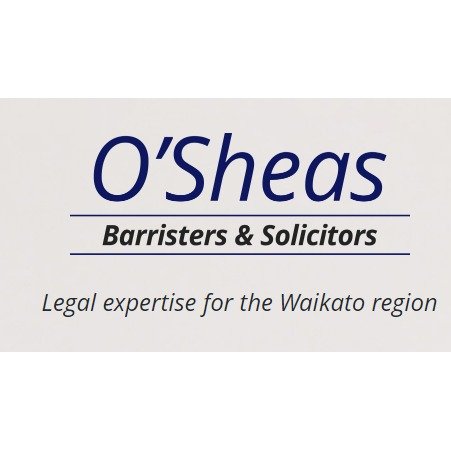Best Natural Resources Lawyers in New Zealand
Share your needs with us, get contacted by law firms.
Free. Takes 2 min.
Or refine your search by selecting a city:
List of the best lawyers in New Zealand
About Natural Resources Law in New Zealand
Natural Resources Law in New Zealand covers the regulation and management of the country's abundant and varied natural resources, including land, water, minerals, forests, and coastal areas. New Zealand is known for its commitment to sustainability and environmental protection, reflected in its innovative legislative approaches. The Resource Management Act 1991 (RMA) is the principal legislation that manages the use, development, and protection of natural and physical resources. The law seeks to promote the sustainable management of resources while balancing ecological, economic, and social considerations.
Why You May Need a Lawyer
There are several scenarios where legal assistance may be necessary in the field of natural resources in New Zealand. Common situations include:
- Navigating complex regulatory approvals for land development or resource extraction.
- Resolving disputes related to resource consents or environmental impact assessments.
- Ensuring compliance with environmental regulations to avoid penalties.
- Addressing conflicts over water rights or access to coastal areas.
- Engaging in Māori consultation and understanding the implications of the Treaty of Waitangi on resource management.
- Legal assistance for public participation in resource planning processes.
Local Laws Overview
Key aspects of New Zealand’s laws relevant to natural resources include:
- The Resource Management Act 1991, which provides the framework for planning and environmental management.
- The Conservation Act 1987, which outlines the principles for conservation and biodiversity protection.
- The Crown Minerals Act 1991, governing the management and allocation of mineral resources.
- Te Tiriti o Waitangi/The Treaty of Waitangi, which ensures Māori participation and rights in resource management.
- The Environmental Protection Authority (EPA), responsible for national environmental management and oversight.
Frequently Asked Questions
What is the Resource Management Act 1991?
The Resource Management Act 1991 is the primary legislation regulating land use and environmental protection in New Zealand, promoting sustainable management of natural and physical resources.
How do I obtain a resource consent?
Resource consents are typically obtained through local councils. It involves submitting an application detailing the proposed activity and its environmental impacts. Legal guidance may be helpful in this process.
What role does Māori have in resource management?
Māori have a significant role in resource management, supported by the Treaty of Waitangi, ensuring their rights and interests are considered in decision-making processes, especially on traditional land and resources.
Can I appeal a decision made under the RMA?
Yes, decisions made under the RMA can be appealed to the Environment Court, which requires particular grounds like issues with process or law. Legal advice can clarify the likelihood of success.
What types of activities require an environmental impact assessment?
Activities likely to significantly affect the environment, such as large-scale construction or mineral extraction, typically require environmental impact assessments to evaluate potential impacts and mitigation strategies.
How is water managed in New Zealand?
Water resources are managed through regional councils under the directions of the RMA and National Policy Statements, with emphasis on sustainable use and protection of aquatic ecosystems.
What should I do if I believe there’s an environmental violation?
If you suspect an environmental violation, you can report it to the local council or the Environmental Protection Authority. In severe cases, legal action may be necessary for resolution.
What are my rights regarding coastal resources?
Access and use of coastal resources are guided by the Coastal Policy Statement and managed by local councils. Activities may require consents, especially where public access or environmental impact is concerned.
Who oversees mineral exploration in New Zealand?
The Ministry of Business, Innovation and Employment oversees mineral resources, including permits for exploration and mining activities as per the Crown Minerals Act.
How does biodiversity protection intersect with resource management?
Biodiversity protection is integral to resource management, ensuring any development or use of land and resources does not adversely affect ecosystems, as mandated by various conservation laws.
Additional Resources
For more information and assistance, consider reaching out to:
- The Environmental Protection Authority (EPA) for environmental regulations and policy information.
- The Ministry for the Environment for policies and guidance on sustainable management.
- The Department of Conservation (DoC) for conservation and biodiversity advice.
- The Māori Land Court and Te Puni Kōkiri for matters involving Māori land and resources.
Next Steps
If you require legal assistance in the field of natural resources, consider the following steps:
- Identify your specific legal needs and gather relevant information and documents.
- Contact a lawyer specializing in environmental or natural resource law in New Zealand.
- Consult with local authorities or councils to understand regulatory requirements and procedures.
- Engage with local iwi or hapū if your issues involve Māori land or interests.
Seeking professional legal advice early on can help navigate the complexities of natural resource management and ensure compliance with local laws and regulations, thereby avoiding potential conflicts or penalties.
Lawzana helps you find the best lawyers and law firms in New Zealand through a curated and pre-screened list of qualified legal professionals. Our platform offers rankings and detailed profiles of attorneys and law firms, allowing you to compare based on practice areas, including Natural Resources, experience, and client feedback.
Each profile includes a description of the firm's areas of practice, client reviews, team members and partners, year of establishment, spoken languages, office locations, contact information, social media presence, and any published articles or resources. Most firms on our platform speak English and are experienced in both local and international legal matters.
Get a quote from top-rated law firms in New Zealand — quickly, securely, and without unnecessary hassle.
Disclaimer:
The information provided on this page is for general informational purposes only and does not constitute legal advice. While we strive to ensure the accuracy and relevance of the content, legal information may change over time, and interpretations of the law can vary. You should always consult with a qualified legal professional for advice specific to your situation.
We disclaim all liability for actions taken or not taken based on the content of this page. If you believe any information is incorrect or outdated, please contact us, and we will review and update it where appropriate.
Browse natural resources law firms by city in New Zealand
Refine your search by selecting a city.
















